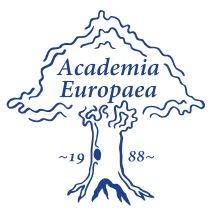Lisa Cheng elected as member of the Academia Europaea
On 26 June 2016 the Council of the Academia Europaea approved a class lists of scholars to be invited to accept membership at the Academia Europaea. Professor Lisa Cheng was elected for the section “Linguistic Studies”.
On 26 June 2016, at a meeting held in Cardiff, United Kingdom, the Council of the Academia Europaea approved Class lists of scholars to be invited to accept membership at the Academia Europaea. Professor Lisa Cheng was elected for the section “Linguistic Studies”. Other LUCL members who were also elected as members in past years are professor Booij, professor Lubotsky, and professor Gzella.
Interfaces with syntax
Professor Cheng is a theoretical syntactician. Her research focuses on the interfaces with syntax: syntax-semantics interface, syntax-prosody interface, and more recently syntax-processing interface. Her work on the different interfaces is approached from a comparative syntax perspective, concentrating on Chinese languages (Mandarin, Cantonese, Wu, and Min), and on Bantu languages (Zulu, Chichewa), as well as on the comparison between these languages. This combination makes it possible to consider various theoretical questions from both a micro-variation and a macro-variation perspective.

Academia Europaea
The Academia Europaea is a European, non-governmental association acting as an Academy. The members are scientists and scholars who collectively aim to promote learning, education and research. Founded in 1988, with over 2000 members which includes leading experts from the physical sciences and technology, biological sciences and medicine, mathematics, the letters and humanities, social and cognitive sciences, economics and the law.
The Academy was seen to be a complement to the European Science Foundation in its role as a coordinator of the European interests of national research funding agencies and organizations. The objectives were kept deliberately broad covering the humanities, social and natural sciences, so as to ensure interdisciplinary discourse and activities. Initial modalities were to include annual meetings of members, multidisciplinary meetings, an interdisciplinary journal, a newsletter, providing independent advice, improving mobility of scholars within Europe and improving public understanding of science.
